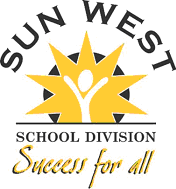Walk the Talk - Strategies for Developing Language
Walk the Talk - Strategies for Developing Language
The following document from Sun West School Division provides a number of strategies and activities for teaching oral language development.
Here is the table of contents:
I. Effective Oral Language Instruction – Best Practices...................... 6
II. Engagement/Opportunities for Practice Strategies
1. Activate Background Knowledge........................................... 8
2. Barrier Game....................................................................... 9
3. Body Movements................................................................ 10
4. Bowling with Words............................................................ 11
5. DEAR................................................................................ 13
6. Hand Symbols.................................................................... 14
7. Individual White Board/Chalkboard...................................... 15
8. Response Card.................................................................. 16
9. Shared Reading................................................................. 18
10. Step-by-Step Guide for Using the Dictionary........................ 19
11. Think-Pair-Sharing............................................................. 20
12. Thumbs Up/Thumbs Down................................................. 21
13. Vocabulary Ring................................................................ 22
III. English Language Structure/Usage Strategies
1. Building Words................................................................... 23
2. Can You Find It?............................................................... 24
3. Elkonin Sound Boxes.......................................................... 25
4. Hinky-Pinky........................................................................ 27
5. Prefix Rolling...................................................................... 28
6. Recasting........................................................................... 29
7. Sentence Scramble............................................................ 30
8. Sentence Starters/Sentence Frames................................... 31
9. Using Precise Language..................................................... 34
10. Using Referents................................................................. 35
11. Word Munchers................................................................. 36
12. Word Order....................................................................... 37
13. Word Part Posters............................................................. 38
14. Word Part Webs................................................................ 39
15. Word Sorts........................................................................ 40
IV. Vocabulary Strategies
1. $100,000 Pyramid............................................................... 41
2. Book Wall.......................................................................... 42
3. Cognates........................................................................... 43
4. Connect Two...................................................................... 44
5. Constructing Meaning......................................................... 45
6. Content Area Word Wall..................................................... 47
7. Content Wall...................................................................... 48
8. Dissect.............................................................................. 49
9. Have You Ever?................................................................. 52
10. Idea Completion................................................................ 53
11. Information Gap................................................................. 54
12. Look Inside – Look Outside................................................ 55
13. Magnet Summaries............................................................ 56
14. Making the Match!............................................................. 57
15. Mind Reader.................................................................... 58
16. Overheard Conversations............................................... 59
17. Phrasal Verbs................................................................... 60
18. Silly Questions.................................................................. 61
19. Student-Friendly Explanations............................................ 62
20. Talking a Mile a Minute...................................................... 63
21. Teaching Morphemes........................................................ 64
22. Using Analogies................................................................ 67
23. Using Describing Words..................................................... 68
24. Vocabulary Logs................................................................ 69
25. Vocabulary Mix Up............................................................. 70
26. Word Analysis................................................................... 71
27. Word Detective Bookmark.................................................. 73
28. Word Lines........................................................................ 74
29. Word Maps....................................................................... 75
30. Word Scaling..................................................................... 76
31. Word Walls....................................................................... 77
32.... Yes/No – Why.................................................................. 78
V. Concept Development/Comprehension Strategies
1. Analyzing Text.................................................................. 79
2. Categorizing..................................................................... 80
3. Chunking......................................................................... 81
4. Concept Attainment.......................................................... 82
5. Concept Board................................................................. 83
6. Concept Character Map.................................................... 84
7. Concept Wheel................................................................. 86
8. Concept Word Map........................................................... 88
9. Double Bubble.................................................................. 91
10. Extending Discussions...................................................... 93
11. Frayer Model.................................................................... 95
12. Get the Gist...................................................................... 99
13. Give One, Get One......................................................... 102
14. I have/Who Has.............................................................. 105
15. Matching........................................................................ 108
16. Narrative Questions........................................................ 109
17. QAR (Question-Answer Relationships)............................. 110
18. Q-Matrix......................................................................... 115
19. Questioning the Author.................................................... 117
20. Retelling......................................................................... 118
21. Thinking Aloud................................................................ 120
22. Thinking Maps................................................................ 121
23. Venn Diagrams............................................................... 122
VI. Appendices
1. Appendix A – Language Development Chart....................... 123
2. Appendix B – Resources/Websites..................................... 126
3. Appendix C – General Features of Instruction..................... 128
